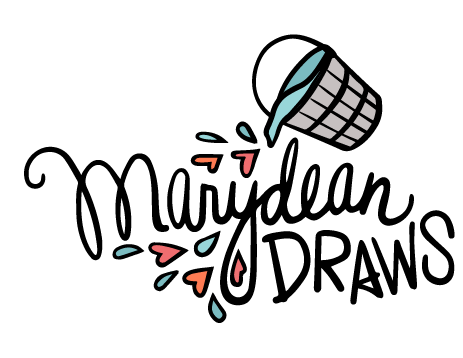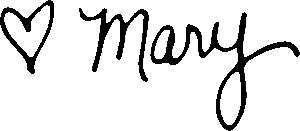

I am so thrilled to share with you one of my favorite online friends, Marcie Walker. She’s a blogger, a writer, a poet, an incredible Instagrammer, a teacher, and a peacemaker.
Marcie blogs at Black Coffee with White Friends, which she started to share her experience as a Black woman in mostly white spaces (she shared more about this in an interview on the Speaking of Racism podcast).
Her newest project is a collection of history lessons for adults on Patreon called Mockingbird History Lessons.
I want to introduce you to Marcie so you can have the joy of not only learning from her, but also of being a part of the community she’s creating.
I asked Marcie a few questions recently about the role of history and race, and about her newest project. Here are those answers:
1. I’ll never forget an Instagram post of yours where you insisted that everyone needs to be able to say with clarity “Slavery was a very bad idea” without any reservations. That has really stuck with me. In a time where many people just want to “move on,” why are you so passionate about researching and teaching people about the past, specifically about our nation’s history with race?
I haven’t always been this way about history. In a lot of ways, I felt that our country’s history had very little to do with the world as I see it today. Part of the reason for that is that my grandparents and parents said very little about their experience as black people in this country. All of them lived in Jim Crow south. All of them migrated North. Both my grandfathers and father served in the military. One of my grandfathers grew up on the plantation in which his parents had been slaves and then sharecroppers. He never learned to read or write. Both grandfathers fought in WWII. My grandmother was a laundress and did domestic work. But I knew very little about their stories. I assumed that their not attending college or always struggling financially was because they had just made bad choices. I did not know that black soldiers were mistreated when they returned home. I didn’t know that domestic work was the only work my grandmothers could legally get. Understanding lynchings, The Great Migration, red-lining has just given me a deeper understanding of where I come from and that’s given me a lot more compassion for everyone’s story. I want every person to have that. There are reasons that we understand the world as we do and those reasons are written and shaped by our country’s history. Knowing our history helps us see the humanity of the world around us and call out any instances of inhumanity that we see.
2. What hopes or goals do you have for the future of your Mockingbird history lessons?
My ultimate hope is to create curriculum for kids Pre-K through High School that can be used by parents, teachers, youth group leaders etc… as a supplement to the history curriculum that many schools and homeschool materials miss. My hope is that kids would learn the forgotten and unspoken history of all races, genders, experiences in our country. The idea is there will be a seasonal curriculum—Fall, Winter, Spring and Summer for each learning level, Pre-K, Elementary, Middle School and High School.
The cool thing is that since Mockingbird History Lessons is part of patreon.com, we have quantitive goals! Patreon actually gives creators space to lay out measurable goals. Maybe it’s because I’m an Enneagram 2, but I love a goal—especially a measurable one.
So here are the goals that I’ve set for Mockingbird—
- When we reach: 750 supporters aka Mockingbirds: Make a promotional video and materials for Mockingbird History Lessons for Kiddos and Launch the first quarter of Mockingbird’s curriculum for all ages!
- 1500 Mockingbirds: Launch the second quarter of Mockingbird’s curriculum for all ages!!! Yes!!!
- 2500 Mockingbirds: Launch the third quarter of Mockingbird’s curriculum for all ages!!!
- 3000 Mockingbirds: Launch the fourth and final quarter of Mockingbird’s curriculum for all ages!!!
- 5000 Mockingbirds: Create more content for the Mockingbird website—I’m talking dreamy content such as master classes with authors, civil rights and social justice leaders. But even more than that, we can partner with non-profits and organizations serving underserved communities and provide curriculums.
- 10,000 Mockingbirds: Connect with towns around the country!!! We could host Mockingbird events such as Trivia Quiz Bowls, Lectures, and Literally Black Coffee with White Friends Q&As.
I have big, BIG dreams for Mockingbird—books, videos, theatre productions, games—you name it. But my biggest dream is to build a large community of likewise thinkers with many voices from diverse backgrounds creating the materials. I also want money to not be a barrier for people. I want the curriculum to be accessible to everyone. So, I do have $1 a month level because I know how hard it is to budget even $12/year for many families. But, I figure if we do it together as a community, we can help out those who can’t afford to commit at a higher level.
3. I know that you’re a Christian and involved in your local church. A lot of American Christians would like to just “focus on the Gospel,” and that somehow that will solve all our nation’s issues with race. How does your faith and reading of Scripture inform and energize your work?
I love this question. You know I have always admired the fact that throughout the Bible, there are moments when people mark history. The Israelites literally carried their history with them as they were fleeing Pharaoh. So many prayers and psalms trace the Jewish history! They are always remembering what happened and what was promised.
And, I love that when Jesus tells a story, he tells one that relates to that history because he knows that his listeners are very familiar with it. I love that. I love that the disciples wrote down what happened. I love that Paul’s letters were saved. This is all history. I feel like when Jesus says that he didn’t come to abolish the law but to fulfill it, he’s saying, “I’m not here to dismiss or disregard history, I’m here to fill in all its nuances that you’ve missed. I’m here to tell the whole history. The truth that I’m sharing is what’s going to set you free.”
I believe that Jesus would do the same for us in this country. I don’t think we can bring good news to the poor, proclaim that the captives be set free, help the blind to see or free people from oppression—without acknowledging what has happened in our history to cause poverty, unjust prison sentences, colorblindness or general blind-unawareness, oppressive systems of destruction. Eugene Peterson’s paraphrasing of the book of James perfectly describes what a blind-gospel looks like: “Dear friends, do you think you’ll get anywhere in this if you learn all the right words but never do anything? Does merely talking about faith indicate that a person really has it? For instance, you come upon an old friend dressed in rags and half-starved and say, ‘Good morning, friend! Be clothed in Christ! Be filled with the Holy Spirit!’ and walk off without providing so much as a coat or a cup of soup—where does that get you? Isn’t it obvious that God-talk without God-acts is outrageous nonsense?”
Racial injustice leads to poverty—physical, spiritual, moral and psychological poverty—for the oppressor and the oppressed. So, until we get to the real root of the problem, giving out cups of soup or gospel tracks won’t cut it.
4. Do you have some book recommendations that are “must-reads” for my readers?
This is always a hard question because reading is such a personal thing. What is a “must-read” for one person may not benefit another. And, there’s already so much guilt out there—many white people feel they just can’t do enough or read enough. Because of that, I’d rather give people articles to start with and podcasts to listen to. I think it’s an easier commitment. I know that I have a lot of learning to do myself in regards to Native/Indigenous, Asian American, Hispanic, LatinX histories. But I’m still learning about my own history as well and living my life. I understand that time is a factor. So, here are articles and podcasts that have been helpful:
Article: The Atlantic, “The Case for Reparations,” by Ta-Nehisi Coates
Article: The New York Times, “The 1619 Project,” edited by Nikole Hannah-Jones
Podcast: 1619
Podcast: White Lies
Podcast: On Being
Podcast: Presidential
Podcast: Constitutional
And, if I had to recommend a book: The Warmth of Other Suns by Isabel Wilkerson— audible.com’s version is wonderful!
A HUGE thank you to Marcie for answering these questions for us. I am excited to hear about the big dreams she has for Mockingbird and to be a part of it! I hope you are inspired and encouraged as well.
One final and important note! February is Black History Month, so this is a great month to join the Mockingbird Patreon community! Subscribers are getting a daily prompt and specific discussion starters for kids of different ages. Friends, you can subscribe for as little as $1/month, so there are no excuses! I’m getting these in my inbox every day, and they are GOLD.
You can find Marcie HERE:
Mockingbird History Lessons Patreon
Instagram @blackcoffeewithwhitefriends | @mockingbirdhistorylessons
Black Coffee with White Friends blog
Did anything Marcie say jump out at you? Leave us a note in the comments!
One final and important note! February is Black History Month, so this is a great month to join the Mockingbird Patreon community! Subscribers are getting a daily prompt and specific discussion starters for kids of different ages. Friends, you can subscribe for as little as $1/month, so there are no excuses! I’m getting these in my inbox every day, and they are GOLD.
You can find Marcie HERE:
Mockingbird History Lessons Patreon
Instagram @blackcoffeewithwhitefriends | @mockingbirdhistorylessons
Black Coffee with White Friends blog
Did anything Marcie say jump out at you? Leave us a note in the comments!









Thanks for this feature, Mary! It’s so very helpful, and what an exciting thing Ms. Walker is doing. Thanks for making me aware of this opportunity.
Thank you, Katie! I’m really excited about vision!